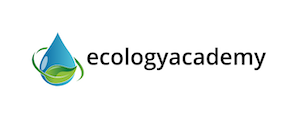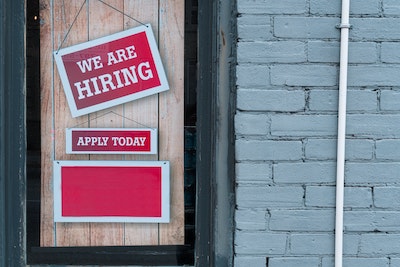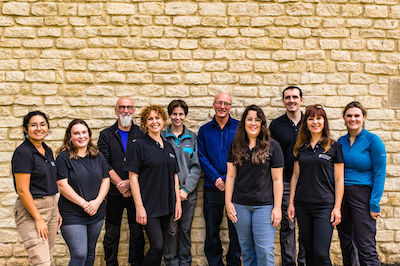Preparing for an Interview
This post is greater than 6 months old - links may be broken or out of date. Proceed with caution!

By Richard Dodd, Ecology Academy
Congratulations! You have been selected to attend an interview. Now, if this is your first ecology related interview, or even if you have attended multiple, then you may be asking yourself “what can you expect during the interview process and from an interview panel?”
Invitation to Interview Letter
Well, before we start talking about the likely questions you may get asked, let us take it back to the invitation to interview letter.
Make sure you read this and then re-read it! As well as the date, time, and venue, what other pieces of information are included? Is there anything specific you need to either take with you or prepare for? Do you have to email or write back confirming a suitable time or that you are going to attend? It is going to be embarrassing than turning up for an interview only to find out that you forgot to accept the invite and that the provisional time allocated to you has been given to another candidate. Awkward!

If physically attending an interview it may sound obvious, but make sure you can attend and know where to go by checking out your route. How are you going to get there? Is there parking at the site, or do I need to find somewhere close by or do I need a permit to park? Do I need to get a bus, train, or taxi? How far is it to walk from the train station? Do I need to eat before the interview? Feeling hungry or being dehydrated is known to affect performance, so do not skip this crucial step. You can do the bulk of this preparation on-line and it is one less thing for you to worry about.
If you are attending via videoconference or phone call (less likely now we are returning to some semblance of normality after the past two years of restrictions), then be sure to identify a comfortable setting where you can attend the meeting. Think about securing an ethernet connection rather than relying on your variable wi-fi speed. Make sure you have the correct app installed and tested before the interview.
If you have been asked to prepare anything for the interview, such as a presentation, do you know if you will have use of a laptop or can bring in a memory stick or do you need to email the company your presentation file beforehand? What is the presentation on? Do you need to take in any original or copies of certificates, licences, or proof of ID?
Preparation
Okay. You know where you are going, when to be there and what you need to take with you. So now let us look at the preparation.
Some basic preparation is essential. Make sure you read anything you sent in as part of your application. More than likely you will be asked a question asking to explain in more detail on some aspects of either your covering letter, CV, or application form. Make sure you remember what you wrote so you do not have that awkward moment of trying to rack your brain as to what you meant by ‘great communication skills during my gap year’!
Now is your time to fully research the company, the people and of course the role.
Dig a little deeper into the company’s history. What are their vision, values, and team structure like? Do you fully understand what work they do and how they do it? Do you know their projects and their competitors? This preparation will help you gain and potentially demonstrate you have a greater knowledge of the company and will fit straight in on day one (assuming you like what you find out that is).

Do you know who you will be working alongside or maybe those on the interview panel? Try finding out before you attend if it is not contained within the invitation letter or email. Use LinkedIn and the 'About us' section of the company website to find out more about their professional interests and experience. This may help you to connect with your interviewers and creative a positive impression during the interview.
Get to know the role you are applying for, but also, if applicable, look at the roles above the one you are applying for. Why were you first attracted to this role? You are probably going to be asked this or a similar question, so really do think about it and be honest! Is there room for career progression where you are going? Maybe this could be a useful question to ask at the end of your interview. Also, what are you doing to obtain those desirable traits that you do not currently have and how could you weave this information into the interview?
There may also be some specific preparation you need to do, such as for a presentation or maybe an exercise they have asked you either to complete before you attend or during your interview. What is it they are after as part of the task? If it is a written example of your work, what could you provide that you have already produced or could amend? If it’s a presentation, do you know how long you have to present for and if you can use any visuals such as a slideshow, drawings, or do they just want you to talk?
Make sure you dress appropriately for the interview. Smart is always the best to go for, even if you are on the phone or on a videoconference. You can get into character and know that this is a special day. Also make sure you avoid alcohol the night before and try to get a good night’s sleep. If you smoke, then perhaps think about how that tobacco, or vape aroma will come across if you are visiting your employer.
On the day
So, you have given yourself plenty of time and you have either arrived at your destination or have the details of the phone call or videoconference.
Take a note pad and pen/pencil, bottle of water, mints/gum and of course all the things you were asked to take with you.
Be on time, think positive, think about your body language, and aim for clarity. All of these require practice, so start turning up for things on time, wear a smile and hold yourself up correctly. You can make or break an interview long before you talk to your interviewers and preparation is key!
Interview questions
The number of questions asked at an interview will of course vary and may be dependent on the nature of the role applied for, time allocated and a whole heap of variables including the interviewers trying to either coach an answer from an interviewee with a long series of mini-questions or indeed the interviewers are so transfixed by you that they want to know more.
However, the types of question asked typically fall into the following categories:
- Get-To-Know-You Questions
- Competency Questions
- Interpersonal Skills
- Initiative
- Stress Management
- Problem Solving/Analytical Skills
- Time Management/Organisation
- Impact
Depending on the role you are applying for will typically direct the type of questions you are asked. For example, as a graduate ecologist you are unlikely to be asked about your managerial or leadership style. However, you may be asked a question about what you would do if you were put in a stressful situation or unsure of something.
Here is a comprehensive selection of questions you may be asked. Use them as a guide, rather than any sort of definitive list.
Get to know you questions
- What have you accomplished in the past that makes you particularly qualified for this position?
- What motivated you to be interested in this position?
- How would your last line-manger or supervisor describe you?
- What aspects of your last job did you really like?
- What are some job responsibilities you do not like?
- How do you know when you have done a good job?
- What areas do you need to further develop to succeed as an ecologist?
Competency questions
- Which ecological surveys or activities do you find interesting? Tell me about how you would prepare for one of these surveys as if you were explaining it to someone with no knowledge about ecology.
- What excites you about this new role?
- What worries you about it?
- How do you ensure that someone understands what you are saying? Tell me about a time when you had to use these skills in the workplace.
- Give me an example of a time when you were unclear about the directions given to you for a work assignment. What did you do to clarify the directions? What was the outcome?
- Think about a difficult manager, lecturer, or other person. What made them difficult? How did you successfully interact with this person?
- Tell me about a performance standard that you have set for yourself. How are you working towards meeting that standard?
Initiative
- Give me an example of when you were given a project and did more than was required in order to exceed someone’s expectation.
- Tell me about a project you initiated. What did you do? Why? What was the outcome? Were you happy with the result?
- Tell me about a suggestion you made to improve the way job processes/operations worked. What was the result?
Stress Management
- Describe a project or goal that caused you frustration.
- How do you know when you are under stress?
- Whom do you go to for support when you are stressed or under pressure at work? Why and how is this person instrumental in alleviating your stress?
Problem Solving/Analytical Skills
- Describe a difficult problem that you tried to solve. How did you identify the problem? How did you go about trying to solve it?
- Describe a situation in which a prompt and accurate decision on your part was critical. What did you consider in reaching your decision?
- Tell me about a time when you had to make a decision without all the information you needed. How did you handle it? Why? Were you happy with the outcome?
- Gaining the cooperation of others can be difficult. Give a specific example of when you had to do that, and what challenges you faced. What was the outcome? What was the long-term impact on your ability to work with this person?
Time Management/Organisation
- We often have multiple tasks to accomplish in a day including report writing, survey preparation, followed by late night bat or newt surveys. Tell me about a time when you had to handle many competing priorities. How did you plan your time? What were the results?
- Tell me about a time when you were given a deadline by a line-manager or supervisor that could not possibly be met. How did you handle it?
Impact
- What would you expect to achieve in the first three months in the role?
Some of these may not be relevant to the role you are applying for. If that is the case, then reframe the question to make it relevant. Also, ask friends or colleagues about their experience in interviews. Was there a species identification test and how did they approach the task?
Also consider a response if you do not know the answer to a question. Sometimes the interviewer is more interested in how you answer a question than the answer itself. If you do not know, then say so. Do not think you have to know everything. Try turning the situation around by saying you will find out after the interview and explain how you would go about finding out. That’s problem solving, initiative and resilience right there! If appropriate, then maybe treat this as a learning opportunity and ask them, with sincerity, how would they answer the question.

Summary
Prepare and you’re halfway there. The interview will either go well or not. Remember to breathe and relax. Yes, it’s easy for me to say as I’m not about to be interviewed. But those two simple techniques will help you a lot. Transfer that nervous anxiety into another form of energy.
It’s also worth bearing in mind that interviews are often as much about finding out whether you’re a good fit for the company as they are about skills and experience. So, instead of solely focussing on the difficult interview questions that might come up (they shouldn’t be if you have prepared), never underestimate the importance of compatibility. A shared vision and alignment of values is important to both parties!
Remember too that your interviewers are often understandably aware of interviewees being slightly anxious on the day. They also understand that people sometimes make mistakes so won’t judge you if you slip up once or twice because of nerves. Honest!
The best of luck to you during your interview.
hello@ecologyacademy.co.uk
https://training.ecologyacademy.co.uk/
First published in CJS Focus on Employability on 23 May 2022. Read the full issue here
More from Ecology Academy